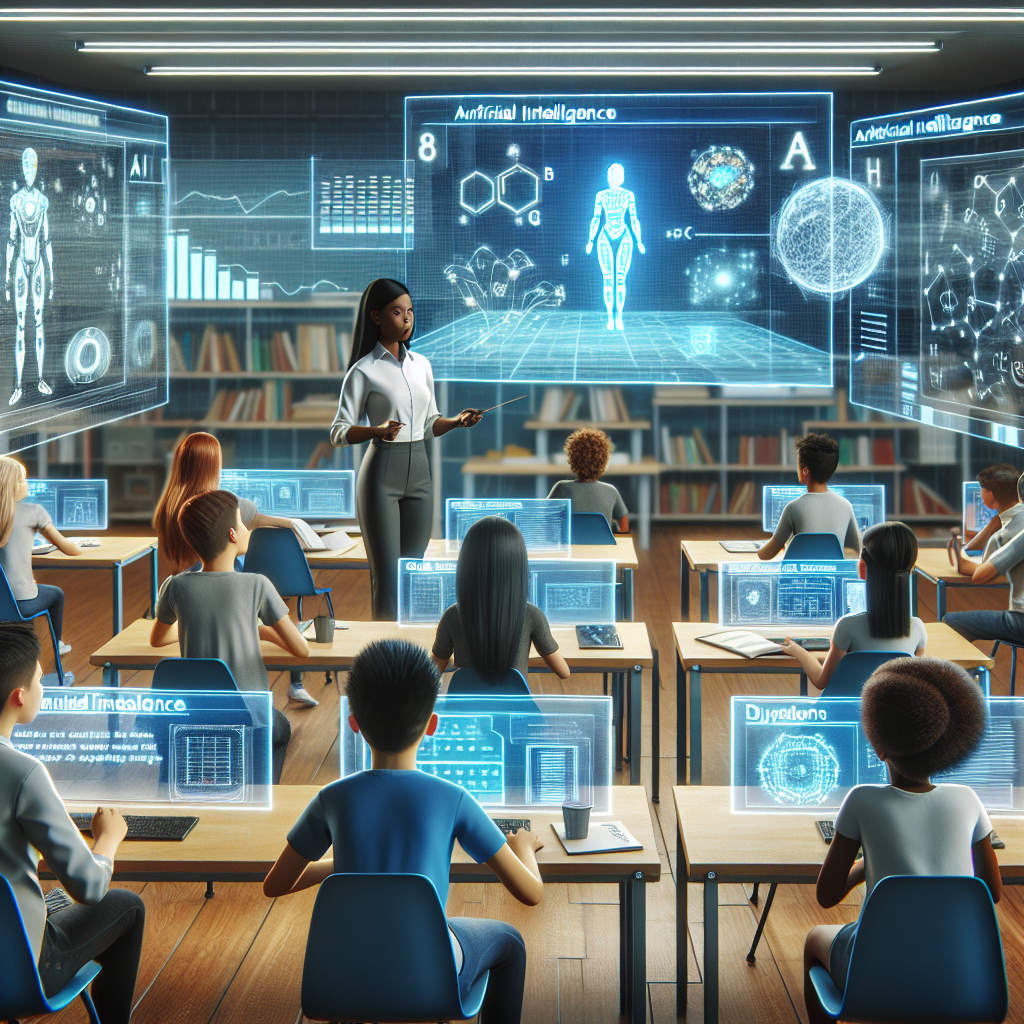As artificial intelligence (AI) continues to advance at a rapid pace, the future of work is being transformed in unprecedented ways. Many jobs that were once performed by humans are now being automated by AI technologies, leading to concerns about the impact on employment and the skills needed for success in the workforce of tomorrow. In order to prepare students for this new reality, educators must adapt their curriculum to ensure that students are equipped with the necessary skills to thrive in an AI-driven world.
One of the key challenges facing educators is how to prepare students for a future where AI is increasingly integrated into the workplace. This will require a shift in the way that we think about education, moving away from traditional models of rote memorization and towards a more dynamic, skills-based approach. In order to succeed in a world where AI is prevalent, students will need to develop skills such as critical thinking, problem-solving, creativity, and collaboration.
One of the most important skills that students will need to develop is the ability to work alongside AI technologies. While AI has the potential to automate many routine tasks, there are still many tasks that require human intervention and oversight. In order to be successful in the future workplace, students will need to be able to collaborate effectively with AI systems, understanding their strengths and limitations and knowing when to defer to human judgment.
Another important skill for students to develop is the ability to adapt to new technologies and ways of working. The pace of technological change is faster than ever before, and students will need to be able to quickly learn new skills and adapt to new tools and technologies. This will require a mindset of lifelong learning, as well as the ability to be flexible and open to change.
In addition to technical skills, students will also need to develop a strong ethical framework for working with AI technologies. As AI becomes increasingly integrated into the workplace, there are ethical considerations that must be taken into account, such as issues of bias, privacy, and transparency. Students will need to be able to navigate these complex ethical dilemmas and make decisions that are in line with their values and principles.
Educators must also consider how to incorporate AI technologies into the curriculum in a way that is meaningful and engaging for students. One approach is to incorporate AI technologies into project-based learning experiences, where students can work on real-world problems and develop solutions using AI tools. This can help students to see the practical applications of AI and understand how it can be used to solve complex problems.
In order to prepare students for the future of work, educators must also address the issue of equity and access. As AI becomes more prevalent in the workplace, there is a risk that certain groups of people may be left behind if they do not have access to the necessary skills and resources. Educators must work to ensure that all students have access to high-quality education and opportunities to develop the skills they need to succeed in a world that is increasingly driven by AI technologies.
Overall, preparing students for the future of work in an AI-driven world will require a shift in the way that we think about education. Educators must focus on developing skills such as critical thinking, problem-solving, creativity, and collaboration, as well as the ability to work alongside AI technologies and navigate complex ethical dilemmas. By equipping students with these skills, we can ensure that they are prepared to thrive in a world that is being transformed by AI.
FAQs:
1. What are some examples of AI technologies that are being used in the workplace?
– Some examples of AI technologies that are being used in the workplace include chatbots for customer service, machine learning algorithms for predictive analytics, and robotic process automation for automating routine tasks.
2. How can educators incorporate AI technologies into the curriculum?
– Educators can incorporate AI technologies into the curriculum by using project-based learning experiences, where students work on real-world problems and develop solutions using AI tools. They can also use AI technologies to personalize learning experiences for students and provide feedback on their progress.
3. What skills will students need to succeed in a future workplace that is driven by AI?
– Students will need to develop skills such as critical thinking, problem-solving, creativity, collaboration, and the ability to work alongside AI technologies. They will also need to have a strong ethical framework for working with AI technologies and be able to adapt to new technologies and ways of working.
4. How can educators ensure that all students have access to the skills and resources they need to succeed in a world driven by AI?
– Educators can ensure that all students have access to the skills and resources they need by providing high-quality education and opportunities for students to develop the necessary skills. They can also work to address issues of equity and access to ensure that no student is left behind in a world that is increasingly driven by AI technologies.

